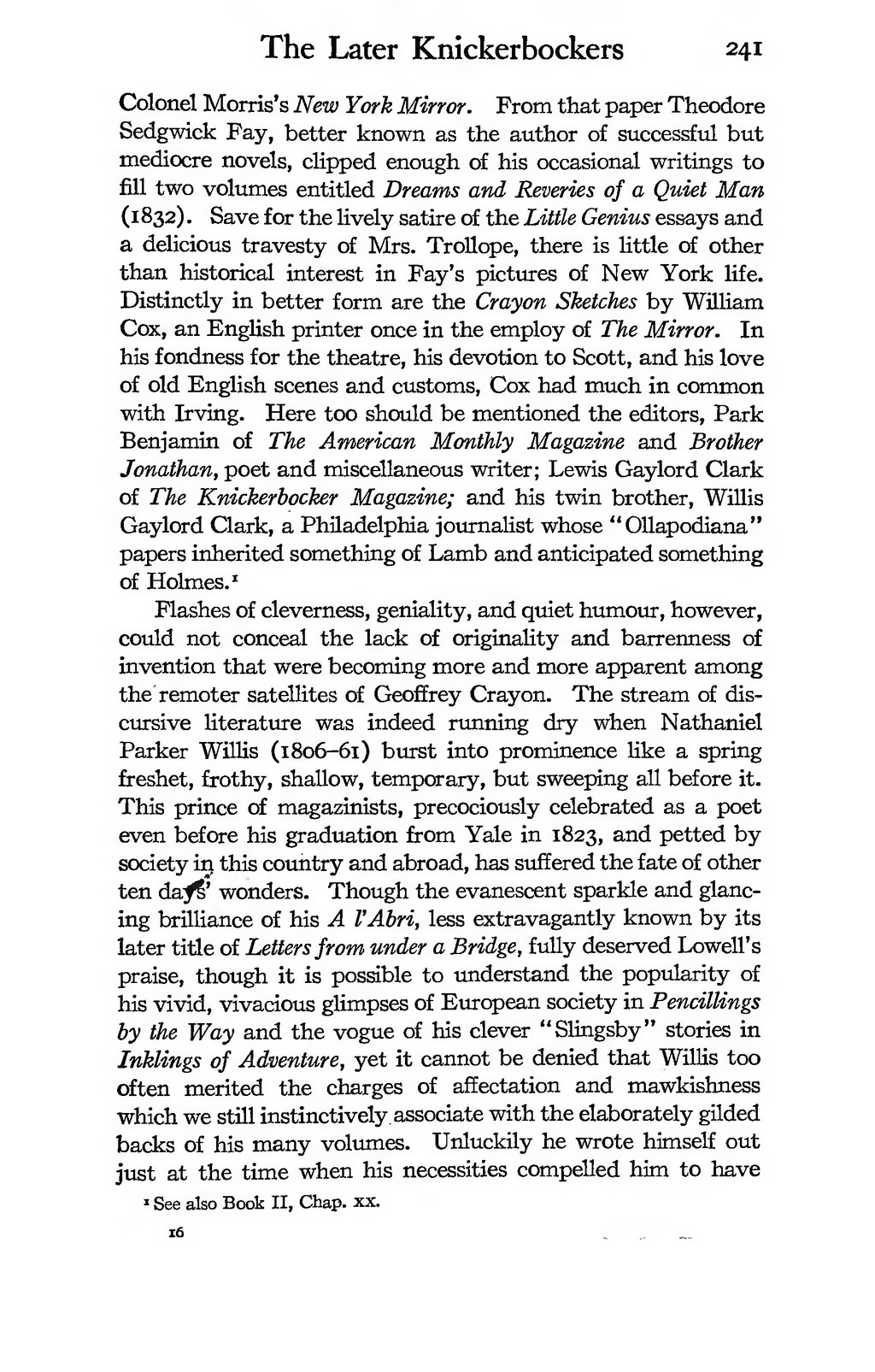Colonel Morris's New York Mirror. From that paper Theodore Sedgwick Fay, better known as the author of successful but mediocre novels, clipped enough of his occasional writings to fill two volumes entitled Dreams and Reveries of a Quiet Man (1832) . Save for the lively satire of the Little Genius essays and a delicious travesty of Mrs. Trollope, there is little of other than historical interest in Fay's pictures of New York life. Distinctly in better form are the Crayon Sketches by William Cox, an English printer once in the employ of The Mirror. In his fondness for the theatre, his devotion to Scott, and his love of old English scenes and customs, Cox had much in common with Irving. Here too should be mentioned the editors, Park Benjamin of The American Monthly Magazine and Brother Jonathan, poet and miscellaneous writer; Lewis Gaylord Clark of The Knickerbocker Magazine; and his twin brother, Willis Gaylord Clark, a Philadelphia journalist whose "Ollapodiana" papers inherited something of Lamb and anticipated something of Holmes.[1]
Flashes of cleverness, geniality, and quiet humour, however, could not conceal the lack of originality and barrenness of invention that were becoming more and more apparent among the remoter satellites of Geoffrey Crayon. The stream of discursive literature was indeed running dry when Nathaniel Parker Willis (1806-61) burst into prominence like a spring freshet, frothy, shallow, temporary, but sweeping all before it. This prince of magazinists, precociously celebrated as a poet even before his graduation from Yale in 1823, and petted by society in this country and abroad, has suffered the fate of other ten days' wonders. Though the evanescent sparkle and glancing brilliance of his A l'Abri, less extravagantly known by its later title of Letters from under a Bridge, fully deserved Lowell's praise, though it is possible to understand the popularity of his vivid, vivacious glimpses of European society in Pencillings by the Way and the vogue of his clever "Slingsby" stories in Inklings of Adventure, yet it cannot be denied that Willis too often merited the charges of affectation and mawkishness which we still instinctively associate with the elaborately gilded backs of his many volumes. Unluckily he wrote himself out just at the time when his necessities compelled him to have
- ↑ See also Book II, Chap. XX.
